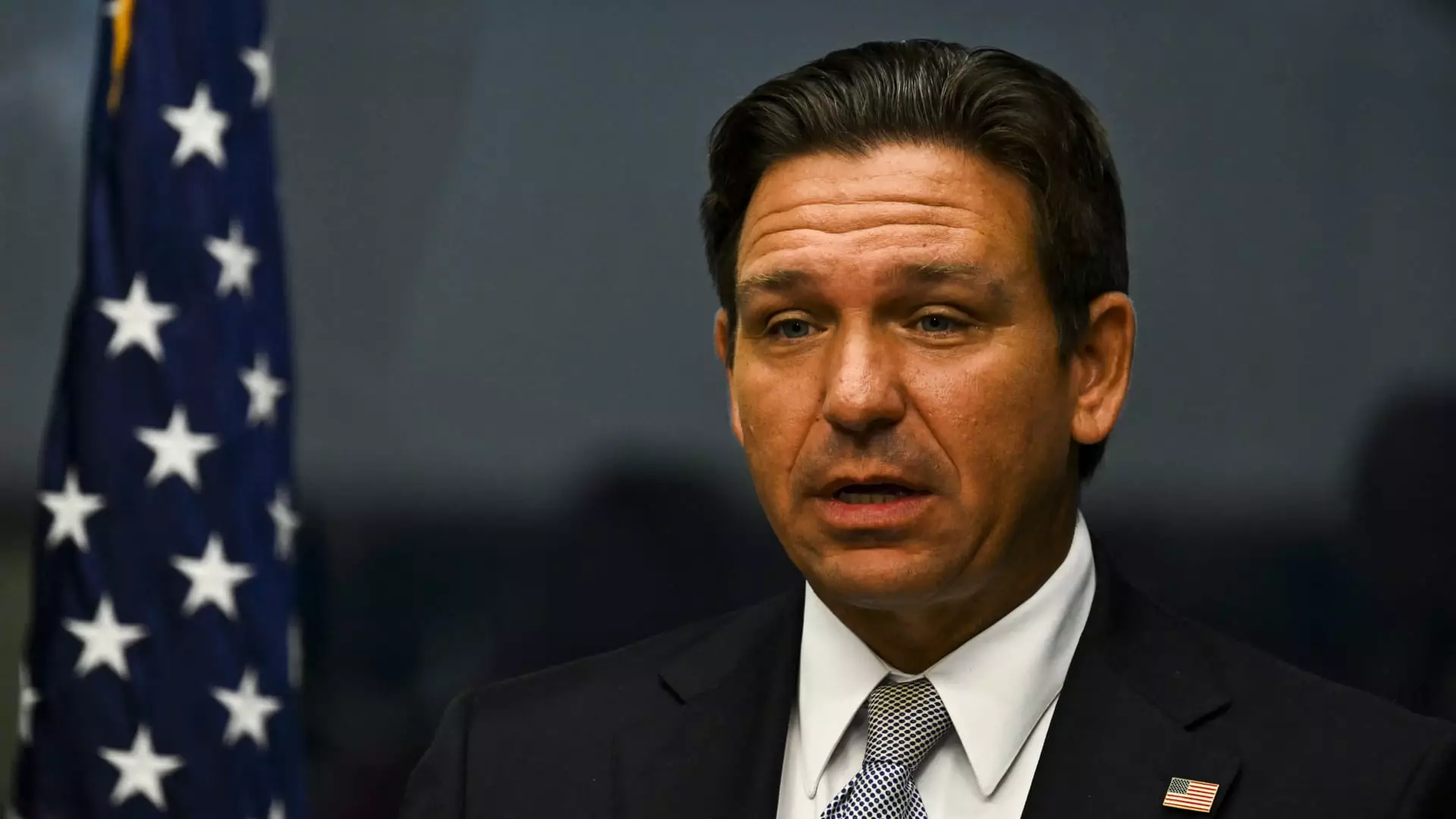In the wake of Hurricane Helene’s destructive path through Florida, political dynamics have emerged that could complicate the state’s recovery efforts. As emergency management plays a critical role, the lines drawn by party affiliation and personal politics have led to a situation where cooperation between state and federal officials may be hindered by perceived political posturing.
Florida’s Governor Ron DeSantis has come under scrutiny for reportedly avoiding communication with Vice President Kamala Harris in the immediate aftermath of the hurricane. A source close to DeSantis revealed that he deemed Harris’s outreach as politically motivated, which raises questions about the willingness of state leaders to engage with the federal government in times of crisis. This reluctance to connect with the Vice President reflects not only on DeSantis’s priorities but also presents a glaring concern regarding bipartisanship during disasters. Such communication barriers may inhibit the rapid coordination needed for effective emergency management and support.
Additionally, it’s concerning that there has been no confirmed communication between DeSantis and President Biden, despite the latter’s ongoing efforts to assist the state recovery. This lack of dialogue can create a vacuum in leadership, and with both leaders representing vastly different political ideologies, their inability to collaborate may cloud the critical recovery process that Florida desperately needs.
Hurricane Helene’s impact on Florida particularly struck the rural regions of the state’s north, leading to significant flood damage and destruction of local infrastructure. Governor DeSantis asserted confidently that Florida had the situation under control and suggested that federal resources could be better directed towards North Carolina, which also faced severe repercussions from the storm. Such a take may appear dismissive of the needs within his own state and could be interpreted by some as a failure to recognize the urgency of local recovery efforts.
Other governors, including Brian Kemp of Georgia and Henry McMaster of South Carolina, publicly thanked President Biden for his administration’s assistance, contrasting DeSantis’s approach. This divergence could intensify political tensions at a time when states should ideally present a united front in the face of natural disasters.
Operation Blue Ridge: A Focus on Assistance
In the midst of the turmoil, Governor DeSantis initiated what he called “Operation Blue Ridge” to assist North Carolina by sending Florida resources, including members of the National Guard. While supporting North Carolina during its recovery could be seen as an honorable act, it also raises questions about DeSantis’s prioritization of state resources amid his own constituents’ struggles.
As the state braced for further impacts from Hurricane Milton, scheduled to make landfall shortly, it became essential for resources to remain within Florida. DeSantis’s decision to redirect help early on may further deplete Florida’s emergency response capabilities just as another storm threatens the same areas already devastated by Helene. The return of resources back to Florida suggests a need for a more balanced approach in resource allocation.
Adding to the complexities is the involvement of former President Donald Trump, who has made sensational claims about the storm’s aftermath, including accusations that a photograph of Harris receiving storm briefings was “fake and staged.” Trump’s comments leave open the door to politicizing the tragedy, potentially diverting attention from the essential work of disaster recovery and relief efforts. His actions serve both as a reminder of the fraught political landscape surrounding emergency situations and as an example of how misinformation can further complicate people’s understanding of the devastation.
The ongoing political discord exacerbates the challenges faced by the people of Florida as the state navigates recovery from Hurricane Helene and braces for yet another storm. Bipartisanship and cooperation between state and federal leaders are essential, but the current political climate may be impeding those necessary relationships. As Florida prepares to confront more challenges ahead, the focus must remain on the effective recovery efforts needed for its communities to heal and rebuild.


Leave a Reply